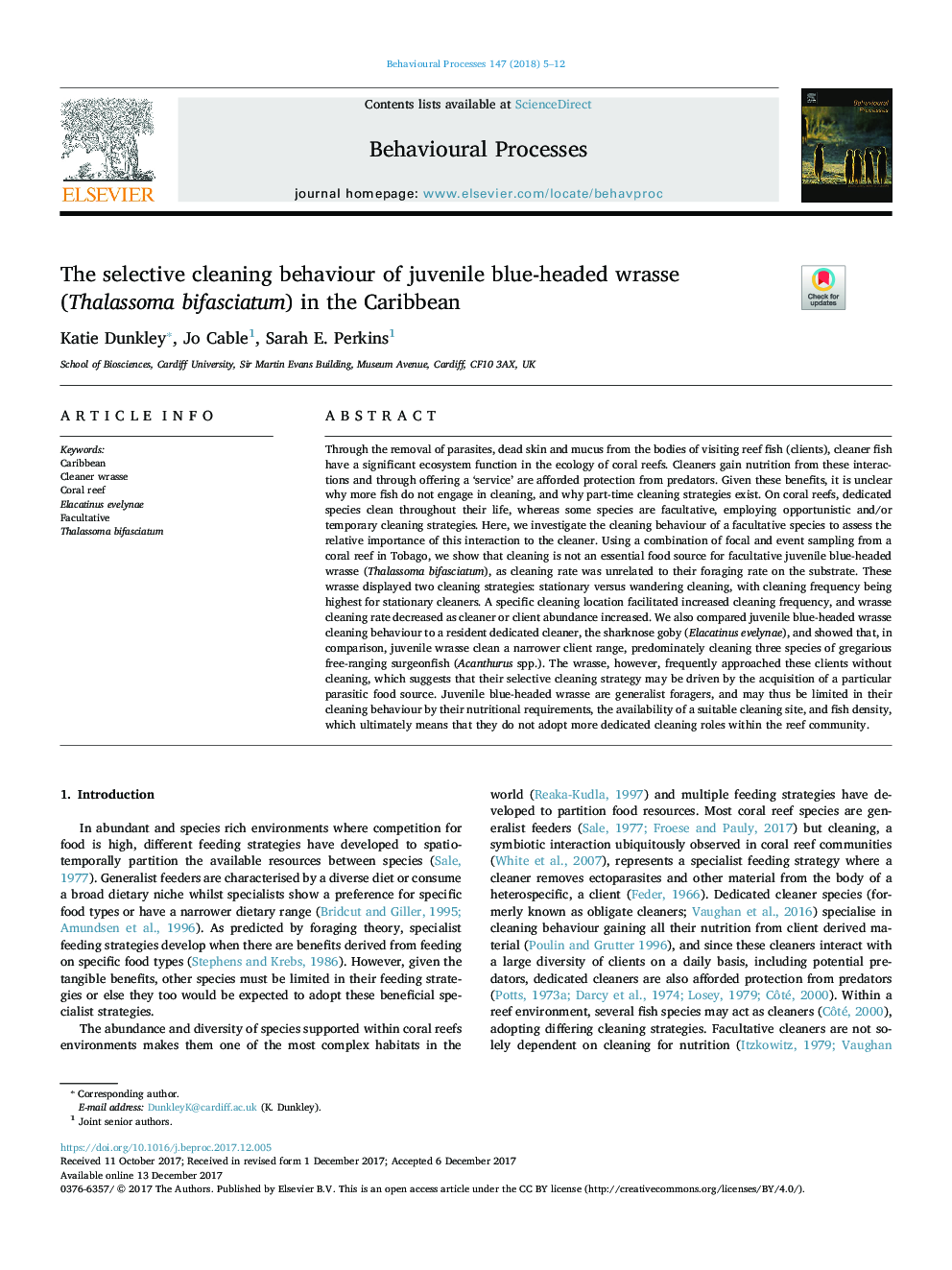| Article ID | Journal | Published Year | Pages | File Type |
|---|---|---|---|---|
| 8497015 | Behavioural Processes | 2018 | 8 Pages |
Abstract
Through the removal of parasites, dead skin and mucus from the bodies of visiting reef fish (clients), cleaner fish have a significant ecosystem function in the ecology of coral reefs. Cleaners gain nutrition from these interactions and through offering a 'service' are afforded protection from predators. Given these benefits, it is unclear why more fish do not engage in cleaning, and why part-time cleaning strategies exist. On coral reefs, dedicated species clean throughout their life, whereas some species are facultative, employing opportunistic and/or temporary cleaning strategies. Here, we investigate the cleaning behaviour of a facultative species to assess the relative importance of this interaction to the cleaner. Using a combination of focal and event sampling from a coral reef in Tobago, we show that cleaning is not an essential food source for facultative juvenile blue-headed wrasse (Thalassoma bifasciatum), as cleaning rate was unrelated to their foraging rate on the substrate. These wrasse displayed two cleaning strategies: stationary versus wandering cleaning, with cleaning frequency being highest for stationary cleaners. A specific cleaning location facilitated increased cleaning frequency, and wrasse cleaning rate decreased as cleaner or client abundance increased. We also compared juvenile blue-headed wrasse cleaning behaviour to a resident dedicated cleaner, the sharknose goby (Elacatinus evelynae), and showed that, in comparison, juvenile wrasse clean a narrower client range, predominately cleaning three species of gregarious free-ranging surgeonfish (Acanthurus spp.). The wrasse, however, frequently approached these clients without cleaning, which suggests that their selective cleaning strategy may be driven by the acquisition of a particular parasitic food source. Juvenile blue-headed wrasse are generalist foragers, and may thus be limited in their cleaning behaviour by their nutritional requirements, the availability of a suitable cleaning site, and fish density, which ultimately means that they do not adopt more dedicated cleaning roles within the reef community.
Keywords
Related Topics
Life Sciences
Agricultural and Biological Sciences
Animal Science and Zoology
Authors
Katie Dunkley, Jo Cable, Sarah E. Perkins,
